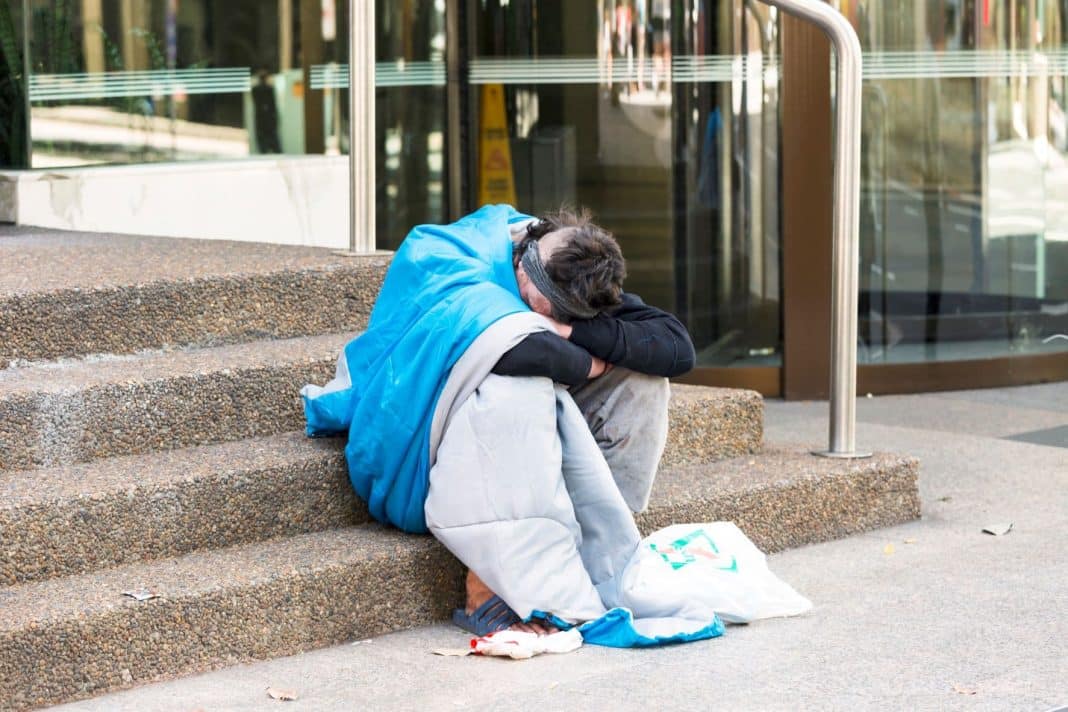SANE’s CEO, Rachel Green, reflects on the need to take a systems approach to tackling homelessness to improve Australia’s worsening mental health situation.
Evidence shows that Australia is facing a national crisis as skyrocketing rental prices and the surging cost of living is forcing many Australians into homelessness.
Homelessness services are telling us they are scrambling to provide temporary accommodation to meet the growing need. And with the cost of living continuing to rise, and rental properties becoming harder to secure, this situation could soon become a whole lot worse.
For many, living without a home can increase the risk of mental illness. Conversely, living with mental ill-health can also increase the likelihood of being homeless.
While the root cause of homelessness can be complicated, its impact can be far reaching. Homelessness can be isolating, destabilising and traumatic, and without the right interventions can have a ripple effect on lives.
The Productivity Commission Mental Health Inquiry report found that 16 per cent of people with mental illness live in unsuitable housing situations that negatively affect multiple aspects of their lives, including the recovery and management of their mental illness.
Indeed, data gathered as part of SANE’s new guided service which provides counselling, community and resources to those with complex mental health supports this finding, with 11 per cent of people presenting to SANE for support reporting difficulty managing their mental health because they are either homeless or at risk of homelessness.
The Productivity Commission report goes on to say that suitable housing that is secure, affordable, of reasonable quality, and where someone can live for a firm period of time, is instrumental in preventing mental ill-health and an important first step in promoting long-term recovery.
Unfortunately, there are countless examples where, not just individuals, but families, including those with young kids, are sleeping rough – living in caravan parks, sleeping in their cars, staying with other households and living in unsafe overcrowded dwellings. Families impacted by fires and floods are still living in temporary housing, and it is heartbreaking to know that these are the very conditions that will lead to a proportion of these families and children experiencing complex mental health conditions later in life.
On NSW’s South Coast recently, the Eurobodalla and Shoalhaven Councils pled with holiday and investment home owners to open their properties up for long-term rental to help families currently living in tents due to the lack of affordable housing.
Comments on newspaper articles and social media posts in these areas are filled equally with people wanting a solution to this urgent problem, and others propagating baseless stigma about why people become homeless, that only reveals the attitudes that prevent owners from opening the doors to largely vacant properties.
Housing shortages and homelessness is a multi-faceted problem, and solutions certainly exist to address each part of this problem, however, none are implemented consistently and comprehensively according to need in a place-based approach.
This is where we can learn from a systems approach to address homelessness, both as a prevention strategy in mental health, and to support people with mental health issues facing or at risk of homelessness. Systems approaches like LifeSpan or the European Alliance Against Depression work on the basis of implementing multiple, reinforcing, evidenced-based strategies in the same place, at the same time and serve as a useful guide in how to tackle complex problems like homelessness – if we identify the right programs, and combine them.
In NSW, for example, the Housing and Accommodation Support Initiative (HASI) and Community Living Supports (CLS) are state-wide programs providing psychosocial supports to people who have a severe mental illness so that they can live and recover in the community, in the way they want to. Programs like HASI can support people to have fewer and shorter mental health hospital admissions and improve their capacity to maintain tenancies.
HASI Plus goes a step further and provides housing and tenancy support along with the psychological support outlined in the previous strategy, however there is a catch, in that the program is only available in five Local Health Districts in NSW and each time it is expanded regions compete against each other.
In Sydney, HomeGround Real Estate is a not-for-profit real estate agency providing professional property management services to landlords and tenants. As a social enterprise of Bridge Housing, HomeGround has secured a tax ruling with the Australian Taxation Office whereby property owners can claim the difference between market rent and the rent they charge for affordable housing as a tax deduction.
This is a useful incentive, but the question remains as to whether this will be enough to convince the owners of the one million homes vacant on Census Night to offer their homes to people who qualify for social housing?
One solution to investment and holiday property owners might be head-leasing – a standard practice of major community housing providers like Mission Australia. Under head-leasing arrangements, owners lease their property to the Non-Governmental Organisation which then takes on the vacancy risk, tenancy management and maintenance responsibility.
SANE is calling for a systems approach to tackle homelessness through combining support for housing providers to expand head-leasing arrangements to take on the vacancy and tenancy management risks, coupled with tax incentives for owners, and digital mental health and community support including the expansion of digital services like SANE’s to support people to maintain their tenancy. This approach offers a comprehensive, consistent and housing-first solution that could enable long-term prevention of mental health issues and support to those impacted by trauma and complex mental health issues to recover.
Rachel Green is CEO of SANE, Australia’s leading national mental health organisation for people with complex mental health issues and their family and friends that support them, and formerly Director of LifeSpan, Black Dog Institute.
Get all the latest Canberra news, sport, entertainment, lifestyle, competitions and more delivered straight to your inbox with the Canberra Daily Daily Newsletter. Sign up here.



